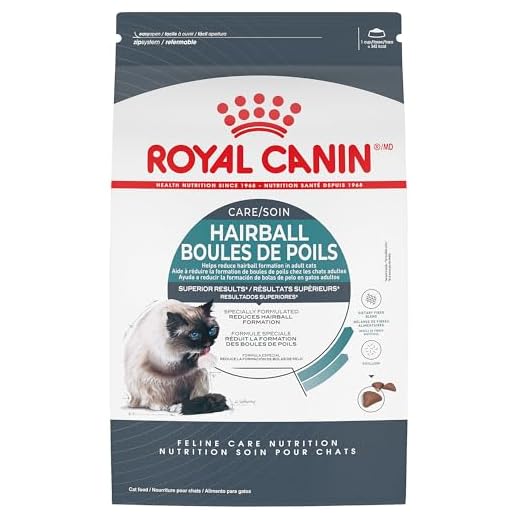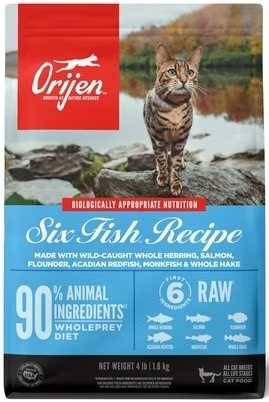




Choosing the right nourishment for your furry companion with luxurious coats is crucial for their health and well-being. This article provides targeted recommendations that cater specifically to the dietary needs of these elegant animals. Whether you’re a new owner or have years of experience, the insights here will guide you towards making informed choices.
You’ll find a selection of high-quality brands that prioritize ingredients essential for maintaining a shiny, healthy coat and overall vitality. Additionally, we discuss various nutritional components, such as omega fatty acids, that play a significant role in enhancing fur texture and minimizing shedding.
This resource is designed for pet owners who want the best for their beloved companions. By the end of this piece, you will be equipped with valuable information on what to look for in commercial options and how to address specific dietary concerns related to grooming and skin health.
Optimal Nutrition for Feline Companions with Luxurious Coats
Choosing the right nourishment is vital for maintaining the health and appearance of felines with luxurious fur. High-quality ingredients are essential to support their unique grooming needs and prevent matting.
Look for formulations rich in omega fatty acids, which enhance the shine and softness of the coat. Proteins from real meat sources contribute to overall health and muscle maintenance, while added fibers can help reduce hairballs, a common concern for those with longer strands.
Key Nutritional Aspects
- Omega Fatty Acids: Promotes a shiny and healthy coat.
- High-Quality Proteins: Essential for muscle health and maintenance.
- Fiber Content: Aids in digestion and reduces hairball formation.
- Vitamins and Minerals: Supports skin health and immune function.
When selecting a product, consider options that include real meat, fish, or poultry as the primary ingredient. Avoid those with excessive fillers or artificial additives. Regularly consulting with a veterinarian can also ensure that your companion receives the nutrition tailored to their specific needs.
Essential Nutrients for Maintaining a Healthy Coat
High-quality protein sources are key for a shiny and healthy fur. Proteins contain amino acids that contribute to the structure of hair, promoting strength and resilience. Look for options rich in chicken, fish, or lamb, as these provide the building blocks necessary for coat health.
Omega fatty acids play a significant role in maintaining skin and coat condition. These fats help to retain moisture and provide a protective barrier against environmental factors. Ensure the diet includes sources of Omega-3 and Omega-6, which are often derived from fish oils and flaxseed.
Additional Nutritional Factors
Vitamins and minerals are also crucial for a luxurious coat. Vitamins such as A, E, and B-complex contribute to skin health and fur quality. Zinc and biotin are particularly beneficial for promoting a glossy coat and preventing dryness.
- Protein: Essential for hair structure.
- Omega Fatty Acids: Maintain moisture and skin health.
- Vitamins: Support overall coat condition.
- Minerals: Contribute to fur shine and strength.
Hydration is another critical factor. Adequate water intake affects the overall appearance of the coat, making it appear fuller and healthier. Always provide fresh water alongside a balanced diet.
Regular grooming aids in removing loose hair and dirt, while also distributing natural oils that enhance sheen. Combine good nutrition with grooming practices for optimal results.
Brands Endorsed by Veterinary Professionals
Choosing the right nourishment is critical for maintaining the health of your furry companion, particularly for those with luscious coats. Veterinarians often recommend specific brands that prioritize high-quality ingredients and balanced nutrition. These options are formulated to support the unique needs of felines, ensuring they receive the necessary vitamins and minerals.
Many experts highlight the significance of selecting a brand that includes protein-rich ingredients as the primary component. This not only aids in muscle development but also promotes a shiny, healthy coat. Additionally, formulas enriched with omega fatty acids play a vital role in maintaining skin health and reducing shedding.
Key Features to Consider
- High Protein Content: Look for products where meat is the first ingredient, ensuring ample protein supply.
- Omega Fatty Acids: Essential for skin and fur health.
- Digestive Health: Probiotics and prebiotics can enhance gut function.
- Quality Ingredients: Avoid fillers and artificial additives for better overall health.
Veterinarians also stress the importance of age-appropriate formulas. Kittens, adults, and seniors have distinct dietary requirements that should be addressed. Regular consultations with a vet can provide personalized recommendations based on specific health conditions or dietary needs.
Incorporating a well-balanced diet can significantly impact your pet’s well-being, energy levels, and coat condition. Always consult with your veterinarian to determine which brand aligns best with your companion’s unique needs.
Wet vs. Dry Nourishment: What Works Best for Fluffy Breeds?
Choosing between moist and crunchy nourishment is essential for maintaining the health of fluffy breeds. Moist options tend to provide higher water content, which can aid in hydration. This is particularly beneficial for those who may not drink enough water on their own. On the other hand, crunchy nourishment can help reduce plaque and tartar buildup, promoting dental health.
Moist nourishment often contains higher protein levels and fewer carbohydrates, aligning with the natural dietary needs of felines. The palatability of these options can be appealing, especially for picky eaters. However, they can spoil quickly once opened, requiring careful storage. Crunchy options usually have longer shelf lives and can be more convenient for daily feeding routines.
Pros and Cons
- Moist Nourishment:
- Higher hydration
- Palatable
- Less shelf-stable
- Crunchy Nourishment:
- Dental benefits
- Longer shelf life
- May contain more fillers
In conclusion, both moist and crunchy options have their advantages and disadvantages. A combination of both may offer a balanced approach, ensuring hydration, dental health, and nutritional variety. Observing individual preferences and dietary needs will help in making the right choice.
Common Ingredients to Avoid for Optimal Fur Health
To maintain the health of your pet’s coat, it is crucial to avoid certain ingredients that can lead to dullness, shedding, and skin issues. Selecting meals free from harmful additives can significantly improve fur quality.
Here are some components that should be omitted from your pet’s nutrition:
- Artificial preservatives: BHA, BHT, and ethoxyquin can negatively impact health over time.
- Fillers: Corn, wheat, and soy provide little nutritional value and can cause allergies.
- Meat by-products: These can include low-quality proteins and should be avoided for better fur quality.
- Added sugars: Excessive sugar can lead to weight gain and skin problems.
- Excessive grains: High grain content may cause digestive issues and fur dullness.
Prioritizing high-quality proteins, healthy fats, and natural ingredients can enhance coat luster and overall vitality.
Best cat food for long haired cats
Features
| Part Number | 800286 |
| Model | 70 |
| Warranty | If you have a question that needs immediate attention, please call (800) 919-2833. |
| Color | Brown |
| Size | 11 Pound (Pack of 1) |
Features
| Part Number | ROY-088 |
| Model | 252406 |
| Warranty | With nearly 50 years of scientific research and observation, Royal Canin continues to deliver targeted nutrition to feed every pet’s magnificence. Not satisfied? Then neither are we. Our formulas are 100% satisfaction guaranteed. (Just contact us for more details.) |
| Color | No artificial color |
| Size | 6 Pound (Pack of 1) |
Features
| Part Number | 70 |
| Model | 70 |
| Warranty | If you have a question that needs immediate attention, please call (800) 919-2833. |
| Color | Brown |
| Size | 12 Pound (Pack of 1) |
Features
| Part Number | 00017800191890 |
| Model | 00017800191890 |
| Color | Other |
| Release Date | 2022-01-21T00:00:01Z |
| Size | 22 Pound (Pack of 1) |
Features
| Part Number | 630220 |
| Model | 630220 |
| Warranty | With nearly 50 years of scientific research and observation, Royal Canin continues to deliver targeted nutrition to feed every pet’s magnificence. Not satisfied? Then neither are we. Our formulas are 100% satisfaction guaranteed. (Just contact us for more details.) |
| Color | No artificial color |
| Size | 6 Pound (Pack of 1) |
Video:
FAQ:
How often should I feed my long-haired cat, and what portion sizes are recommended?
The feeding frequency and portion sizes for long-haired cats depend on their age, weight, and activity level. Generally, adult cats should be fed twice a day, while kittens may require three to four meals daily. It’s crucial to follow the guidelines provided on the cat food packaging, as they typically indicate recommended portion sizes based on your cat’s weight. For instance, a standard guideline might suggest a range of 1/2 to 1 cup of dry food per day for an average-sized adult cat. However, you should monitor your cat’s weight and adjust portions accordingly to prevent obesity. Always consult your veterinarian for personalized recommendations based on your cat’s specific needs.
What are the nutritional needs of long-haired cats?
Long-haired cats require a diet that supports their unique grooming needs and overall health. The primary nutritional components include high-quality proteins to maintain muscle mass and support hair growth. Omega fatty acids, particularly Omega-3 and Omega-6, are essential for keeping their coat healthy and shiny, as well as reducing shedding and matting. Additionally, vitamins and minerals such as biotin, zinc, and vitamin E play a role in skin health. A balanced diet with adequate fiber is also important to aid digestion and help prevent hairballs, which are common in long-haired breeds.









